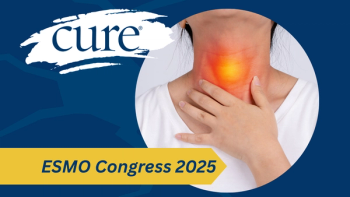
- Spring 2005
- Volume 4
- Issue 1
Esophagitis: A Common Radiation Side Effect
Radiation-induced esophagitis, the inflammation of the esophagus, is an unpleasant but temporary side effect of radiation therapy.
Radiation-induced esophagitis, the inflammation of the esophagus, is an unpleasant but temporary side effect of radiation therapy. Esophagitis is common in people who receive radiation therapy to the chest area for cancer of the esophagus as well as other cancers, including lung cancer and lymphoma.
Esophagitis feels like an internal sunburn and usually develops two to three weeks after the initiation of radiation therapy. In addition, the person might feel a sharp, burning pain or food getting stuck in the chest when swallowing.
The cells that form the lining of the esophagus renew themselves rapidly and are vulnerable to chemotherapy and radiation. Unlike chemotherapy, which affects the entire body because it is distributed throughout the bloodstream, radiation only affects the body structures within the irradiated area.
Esophagitis is more common in people who receive chemotherapy immediately prior to and/or during radiation. The longer the radiation field (the area of the body receiving radiation), the more the esophagus is included and the greater the incidence of esophagitis. And the higher the daily dose of radiation, the more likely it is the person will develop esophagitis.
A lower daily dose of radiation can reduce the severity and likelihood of esophagitis, and keeping the length of the field as confined as possible is helpful. When it is necessary to treat a long field, giving a planned break of one week halfway through the treatment is prudent.
A commercially available drug called Ethyol (amifostine), which is a radiation protector, can be administered via injection 30 minutes prior to each radiation treatment. This can reduce radiation esophagitis and has been studied most extensively in the setting of lung cancer. Extending its use to other situations is under investigation.
The goals of treating esophagitis are to keep the person comfortable and to maintain nutrition, body weight, and fluid intake. High-calorie liquids, puddings, and custards are good choices. Softening one’s diet, avoiding extremely hot or cold foods, and refraining from alcohol and spicy food is the first step in alleviating the discomfort of esophagitis.
Prescriptions are available to numb, coat, and reduce inflammation in the esophagus. Pain medication can also be prescribed. Occasionally, people develop a fungal infection of the esophagus, which is treated with an antibiotic. Typically, radiation therapy is not interrupted.
Once radiation is completed or suspended, esophagitis usually resolves uneventfully within two to four weeks. The person can resume a regular diet, and esophagitis is not likely to recur.
Articles in this issue
over 16 years ago
Recommended Resourcesover 20 years ago
Esophageal Cancer: A Disease on the Risealmost 21 years ago
The Healing Journeyalmost 21 years ago
The Science & Controversy Behind Touch Therapiesalmost 21 years ago
Navigating the Caregiver Terrainalmost 21 years ago
Choosing a Qualified Practitioneralmost 21 years ago
What To Know Before You Goalmost 21 years ago
A Confusing Array of Choicesalmost 21 years ago
Risk Factorsalmost 21 years ago
GERD: An Increasing Problem



